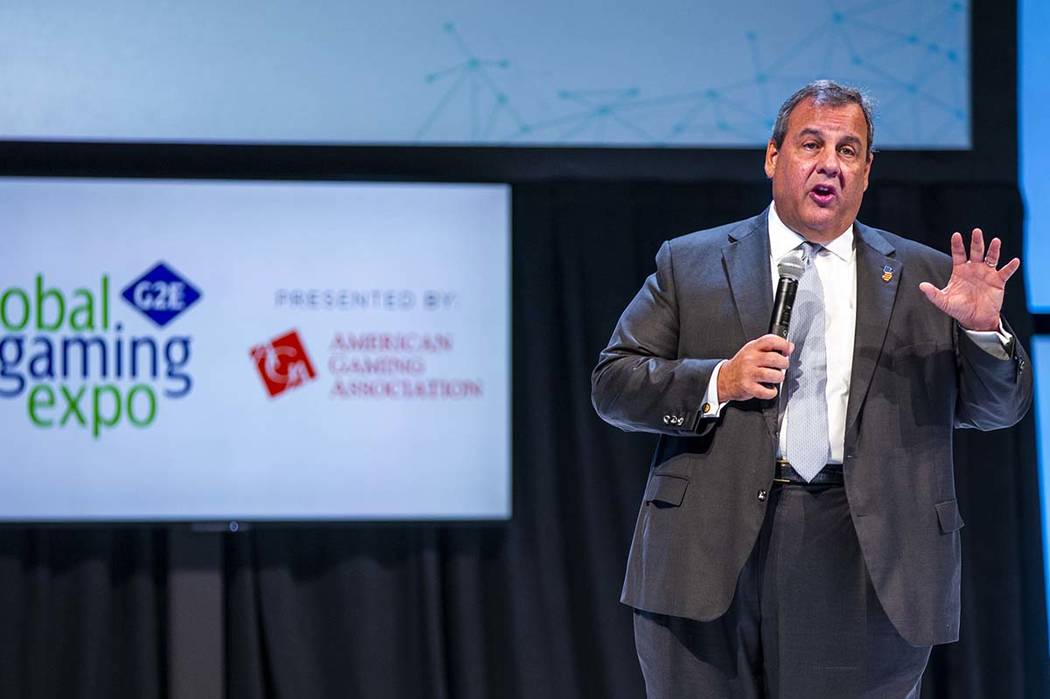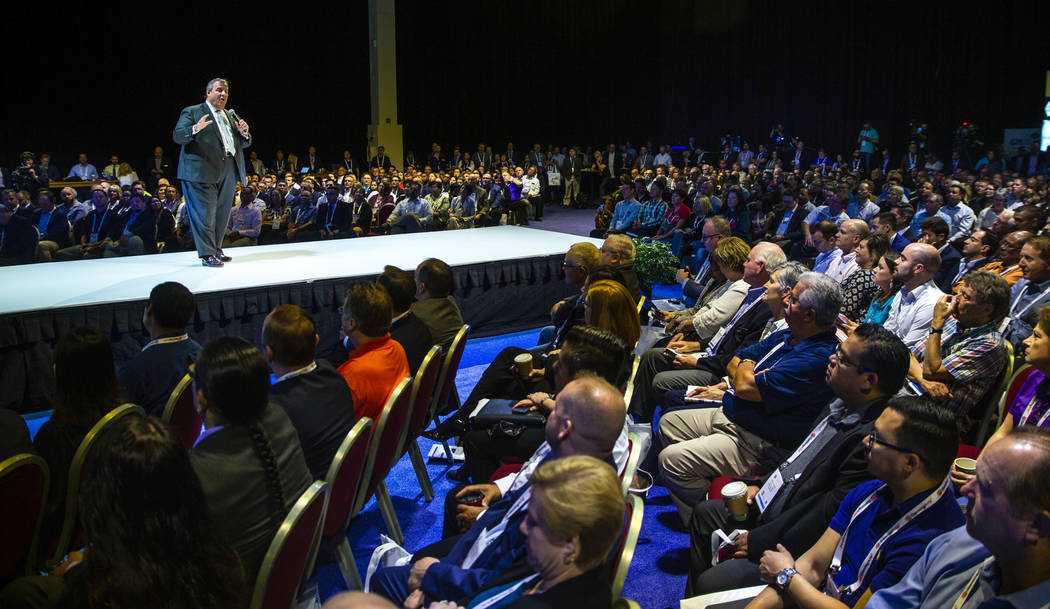Sports betting continues to be hot topic of the casino industry
You couldn’t walk 20 feet within The Venetian and the Sands Expo and Convention Center last week without running into a conversation about some aspect of sports wagering.
And why not?
Betting on sports, enabled by the Supreme Court’s repeal of the Professional and Amateur Sports Protection Act in May 2018, opened the floodgates to a market previously owned exclusively by the state of Nevada.
Sports betting continues to be on a fast-paced track. During last week’s four-day Global Gaming Expo, Oregon became the 14th state to approve legal betting.
The American Gaming Association told attendees of the Global Gaming Expo that sports betting was going to be a highlighted event. It delivered former New Jersey Gov. Chris Christie for a “How New Jersey Fought the Feds and Won,” and he presented a play-by-play of how the state battled major sports leagues and the NCAA to crush the PASPA.
Almost gave up the fight
Christie admitted he almost gave up the fight when he lost six appeals before finally getting a hearing before the Supreme Court, which determined in a 7-2 vote that parts of PASPA were unconstitutional.
Christie said the fight was all about states’ rights to determine whether they could offer wagering on sports.
The states’ rights argument has resulted in different states taking different paths toward legalization. In Indiana, for example, the board of trustees of Purdue University approved a sports wagering policy that applies to students and faculty, prohibiting them from betting on Boilermaker sports teams.
Ohio State University also is lobbying state legislators to draft a ban on betting on the Buckeyes in that state.
Imagine if the Nevada Board of Regents attempted to apply that blanket to students and faculty at UNLV and UNR. Pandemonium!
A panel discussion that included NHL Commissioner Gary Bettman and the CEOs of three prominent sports wagering operations went into Washington D.C.’s strategy that will include live wagering at the stadiums and arenas where the city’s Nationals, Capitals and Wizards play.
We won’t likely see that here because current law requires that venues taking bets be licensed and the licensing criteria would make T-Mobile Arena and Allegiant Stadium ineligible.
Bettman shrugged that off; most sports bettors, he said, place their wagers through apps on their phones or tablets. Bettors can literally put money on games they’re watching from the stands.
A recurring theme in several sports betting panels was the effort to keep the federal government out of the sports-betting business.
Patchwork of rules
Because states have been given authority to establish their own sets of rules for regulating sports betting, all interested parties have to keep up with a patchwork of rules in each jurisdiction.
Philosophical differences on tax rates, licensing fees, the monitoring of integrity and access to betting via brick-and-mortar books or mobile phone apps are among the differences that exist from state to state. Late last year, U.S. Sens. Chuck Schumer, D-N.Y., and Orrin Hatch, R-Utah, introduced federal sports wagering legislation that hasn’t gone anywhere. Some critics contend that other legislative business will keep lawmakers busy and sports betting bills will get lost in the shuffle.
While some welcome some form of federal standardization of the rules, it may be impossible to get everyone on the same page. The biggest worry is that if the federal government intervenes it could attempt to cut itself into a piece of the sports-betting revenue action.
Christie’s affable personality and his shoot-from-the-hip criticism made him one of the biggest hits of G2E.
He delivered a backhanded slap at Nevada for requiring mobile app users to appear in a casino before getting cellphone access to bet. In New Jersey, there’s no such requirement. He called Pennsylvania’s casino regime “a rolling dumpster fire” because of its 50 percent tax rate (Nevada’s average rate is 6.75 percent).
Jersey No. 1, says Christie
Christie proclaimed New Jersey as the new leader of sports betting in the United States because it has generated more revenue than Nevada in recent months.
With New Jersey taking thousands of dollars in action from New York it would be bigger news if New Jersey didn’t generate more revenue than Nevada.
Christie can make the claim that New Jersey is king, even though all of us in the Silver State know it’s an unfounded boast.
The Review-Journal is owned by the family of Las Vegas Sands Corp. Chairman and CEO Sheldon Adelson. Las Vegas Sands operates the Sands Expo and Convention Center, as well as The Venetian and Palazzo.
Contact Richard N. Velotta at rvelotta@reviewjournal.com or 702-477-3893. Follow @RickVelotta on Twitter.



















